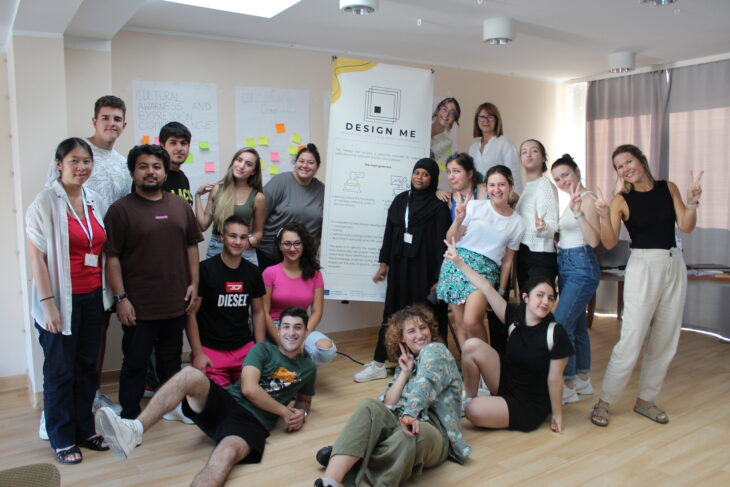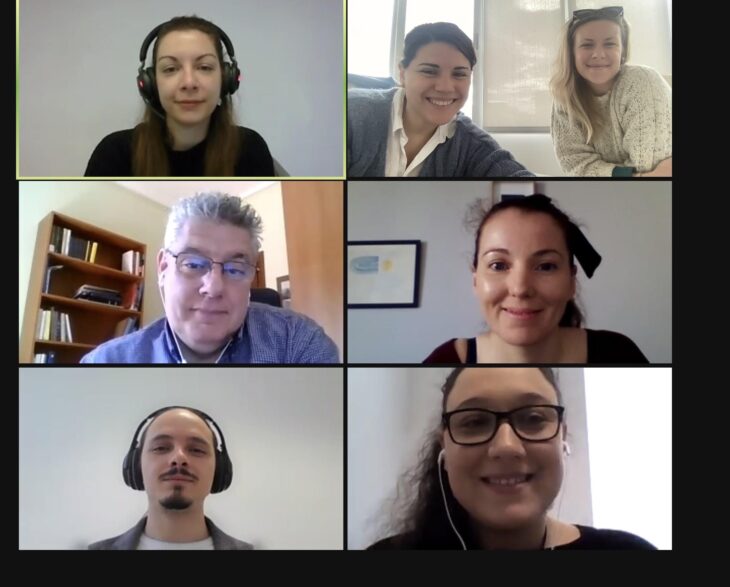The European Erasmus+ KA2 project “Future Forward – Empowering adult learners to use AI for everyday life and work” project, of which our German agency Berlink is a partner, aims to help adults and teachers understand and use AI in a practical, safe, and informed way.
Below is another article on the project.
Artificial Intelligence is becoming part of everyday life in Europe- but not for everyone.
While younger generations and large companies adopt AI tools rapidly, a significant portion of adults still feel uncertain, excluded, or skeptical. Understanding where and why these gaps exist is the first step toward meaningful digital inclusion.
1) The Current Situation: What the Numbers Show
- Digital Skills: Only 56% of European adults have basic digital competencies. This means that nearly one in two adults is not yet ready to use AI confidently.
– AI at Work: In 2024, 13.5% of EU companies reported using AI—up from 8% in the previous year. Adoption, however, is much higher in large companies, while small businesses remain behind.
– Personal Use: About 42–44% of adults in Europe use generative AI tools at least once a month—usually for everyday tasks such as translation, summarization, or email support.
Where Adoption Is Lower
Countries where adults use AI the least include:
Romania (32%), Italy (25%), Portugal (24%), France and Belgium (23%).
These differences reflect more than just technology access.
They relate to confidence, exposure, and digital culture.
2) Why Many Adults Still Avoid AI
It’s not just fear of technology. It’s a combination of:
| Barrier | What it Means in Practice |
| Low digital confidence | “I’m afraid of doing something wrong.” |
| Lack of relatable examples | “I don’t see how this helps me.” |
| Overly technical language | “This is for experts, not people like me.” |
| Learning without guidance | “I get lost when I try alone.” |
Adults don’t need more technology — they need meaningful explanations and human support.
3) What Actually Works: Practical, Effective Approaches
a) Start from real needs, not tools. Show small, useful applications:
– Write a clear email faster
– Translate a document with one click
– Summarize long texts when overwhelmed
When adults see usefulness → motivation increases.
b) Keep the language simple
No “neural networks” or “predictive modeling.”
Just: “A tool that helps you make a task easier.”
c) Learn together, not alone
Group learning:
– Builds confidence
– Reduces anxiety
– Creates shared problem-solving
4) A More Human Approach to Digital Innovation
Helping adults use AI is not just about technology.
It is about:
– Autonomy
– Participation
– Dignity
These findings highlight how crucial it is to support adults in developing the skills needed to engage confidently with AI. In this sense, the work carried out within the Erasmus+ Future Forward project is timely and relevant: it focuses on practical training pathways and inclusive learning environments that empower adults rather than overwhelm them.
A future that includes everyone is a future worth building.
Keep following the project to check all the news and further contents in the website and social media channels (Facebook and LinkedIn).



















